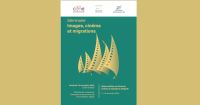The office of New York City Comptroller Scott M. Stringer is publishing "The Immigrants Rights and Services Manua."
A new resource is coming for immigrants living in New York.
"The Immigrants Rights and Services Manual" published by the Office of New York City Controller Scott Stringer provides valuable information on many topics of interest to immigrant New Yorkers, including help with labor and employment rights and how to access health care benefits.
The manual, which will be available in English, Chinese, Korean, Russian and Spanish, can be found by calling the Controller's Community Action Center at 212-669-3916.
You can download it or order a hard copy online at comptroller.nyc.gov or by visiting the Controller's office at 1 Centre St #530, New York, NY 10007.
Q: I am in New Jersey on an F-1 student visa, working with practical training employment authorization. That status will expire soon. How can I continue living and working in the United States? Can I petition for myself for a green card? My employer petitioned for H1-B status but that didn't work out. I know my employer can again petition for me for H-1B status, but I'm wondering if I can self-petition based on my skills and experience.
A. To self-petition for permanent residence based on employment you would need to have an extraordinary ability in your field or doing work in the “national interest.”
Both categories require that you have achieved a high level of accomplishment in your field. That's hard to prove for a recent college graduate. Trying to get H-1B status is a better bet. That temporary status is available to individuals with at least a four-year college degree or the equivalent in education training or experience.
Current law allows for only 85,000 new H-1B visas yearly, 60,000 for workers with a four-year degree, and 20,000 more for workers with a Master's degree or higher.
The law provides exceptions to these caps for institutions of higher education and not-for-profit or governmental research institutions.
For other employers, U.S. Citizenship and Immigration Services will begin accepting petitions on April 1 for work that begins in October 2016. Have your employer file a petition and hope for the best.
Source: New York Daily News





